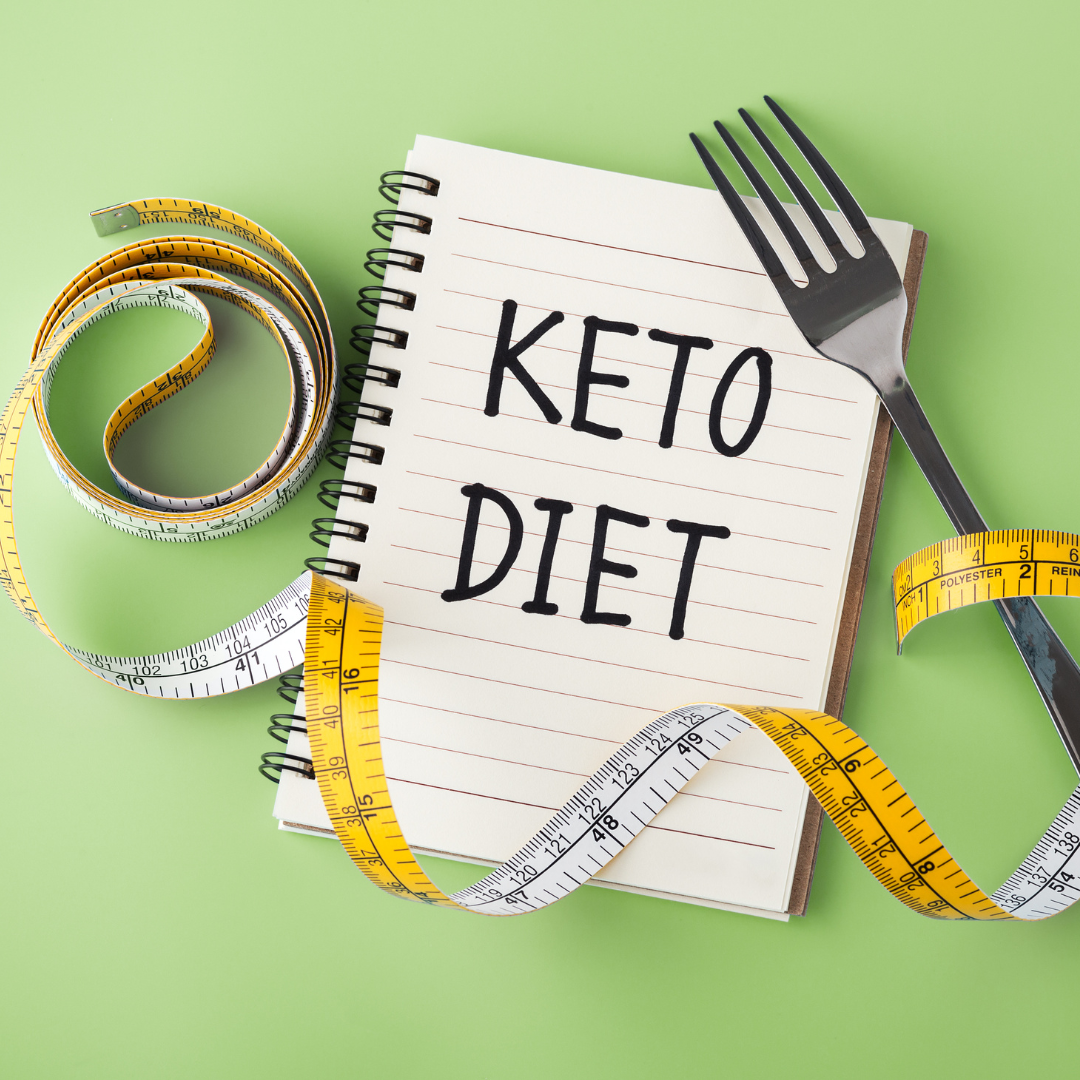There is a lot of chatter in media and wellness circles about the safety of restricting carbs on a long-term basis. I must admit, I always laugh to myself a little when I hear people say it’s not good for you, but the truth is in the detail! With a focus on swapping highly processed, nutrient-poor foods with nutrient-dense whole foods containing good-quality fats, you can create a positive relationship with food that promotes good health and may even reduce or eliminate some existing health issues. While there is an element of restriction, there is certainly not deprivation.
One of the main concerns we hear about keto dieting is the amount of fat consumed. Fat is bad for us, right? Not necessarily. Eating fat doesn’t directly drive the biology to make you fat – carbs do that. However, that does not mean you have a license to consume as many calories as you like (otherwise you will still put on weight), and obesity is the greatest health risk due to the inflammation associated with it. Instead, balancing the right amount of fat and protein in each meal will leave you naturally consuming fewer carbohydrates and more fat than you were used to. Maintaining your weight and energy levels will become effortless as your blood sugars and hormones that control energy production and weight (such as insulin) are kept in check, and your body will work as it is designed to – as a fat-burning machine!
There is also no need to worry about blood cholesterol or the adverse effects of consuming more saturated fat. A number of meta-analyses in recent years have found no significant association, in terms of study participants’ relative risk of heart disease or total mortality, between those participants who eat the most and the least saturated fat. Instead, eating lots of fat, as you would in a low-carb diet, has conversely been shown to improve blood health markers including cholesterol profiles.
KETO DIET SIDE EFFECTS
Once your body is used to a keto diet, you shouldn’t have any problems. In fact, you should be feeling better than before, with more energy, faster recovery from exercise and greater mental clarity. However, some people will experience a range of side effects in the first weeks of transitioning to a low-carb diet. These include:
- Dizziness
- Light-headedness
- Brain fog
- Lack of energy
- Craving for sweet stuff because of sugar/carb addiction withdrawal
- Body aches
Don’t worry, this is normal and will pass. Your brain has been used to getting 100 per cent of its fuel from glucose and is now undergoing a sort of biochemical re-orchestration. It is entering a state of ketosis, which refers to the production of ketone bodies for use as fuel in the absence of glucose, which are derived from fats (and some amino acids).
These symptoms are temporary and some people don’t experience them at all. The severity of your symptoms and the likelihood of getting them at all depends on several factors: how much carbohydrate you currently eat in relation to how much you will be eating (the bigger the drop in carbs, the more likely the symptoms), and how sugar- or carb-addicted you are (the more addicted you are, the more likely you are to experience the symptoms).
To overcome these side effects, my suggestion is to plan in advance. For example, beginning your keto journey on a Thursday or Friday is a good idea if you work during the week. That way, you will experience the height of your symptoms over the weekend when you can rest and hopefully most of the symptoms will be gone by the start of the next week. The golden rule is to not succumb to those cravings, no matter what!
There are a few other tricks you can employ to help get you through the transition phase:
- Eat enough salt. As the body adjusts, sodium tends to be dumped by the body to preserve the sodium-potassium balance in the body. You may also be eating way less processed food and thus less salt as well. This can result in hypotension (low blood pressure) and cramps, dizziness and lack of energy. With extreme carb restriction this is often called ‘keto-flu’.To help prevent or alleviate these symptoms, add half a teaspoon of salt to your existing food intake or consume 1-2 cups of broth each day (stock cubes mixed in water).
- If in doubt, eat more fat. Don’t regard the adaptation phase as a weight loss phase. You may end up losing weight, but the key is to make the metabolic switch.
- MCTs may help. Medium chain triglycerides, like Lauric acid (found in coconut oil), may help in alleviating symptoms. MCTs can be used by the brain directly as a fuel source, so extra MCTs may help provide a second temporary fuel source to the brain as you adapt.
- Watch your carbs. Eating too many carbs will mean that you don’t quite deplete the brain of glucose enough for it to have to reset its fuel supply, which means you can end up in a grey zone where you rarely have enough glucose to run the system, but you haven’t depleted it enough to stimulate ketone production and use. Most people, depending on activity level, will initially need to go below about 50 g carbs a day to kickstart ketosis.
BENEFITS OF KETO DIET
When you can control your blood sugar and the hormones that control your energy levels and weight (especially insulin), your body is better equipped to work as it was designed to – to burn fat as fuel and sustain your energy all day. Carbohydrate is responsible for spiking insulin and blood glucose levels that leave you feeling lethargic, unwell and constantly hungry. Once you find your carb-tolerance level, your body will be able to send and receive the messages it needs to stay in shape, to tell you when you are full, and to energise you. The benefits are sustained weight management, greater mental clarity, more energy during the day and even improvements to inflammatory conditions and chronic pain. For the athlete, ketogenic diets are growing in promise for faster recovery and better performance. I discuss this more in my book What The Fat? Sports Performance: Leaner, Fitter, Faster on Low-Carb Healthy Fat.
Low-carb, ketogenic dieting has also been shown to have many therapeutic benefits, including case-study evidence of improvements in conditions such as drug-resistant epilepsy, Alzheimer’s disease, some cancers, depression, migraines, acne, polycystic ovary syndrome (PCOS) and multiple sclerosis (MS). Ketogenic diets could be really helpful for a whole lot of things – we don’t know the full answer yet. If you have a specific health challenge, I certainly advocate doing your own reading and speaking to your health professional about the keto diet as an adjunct to your current treatment regime.

